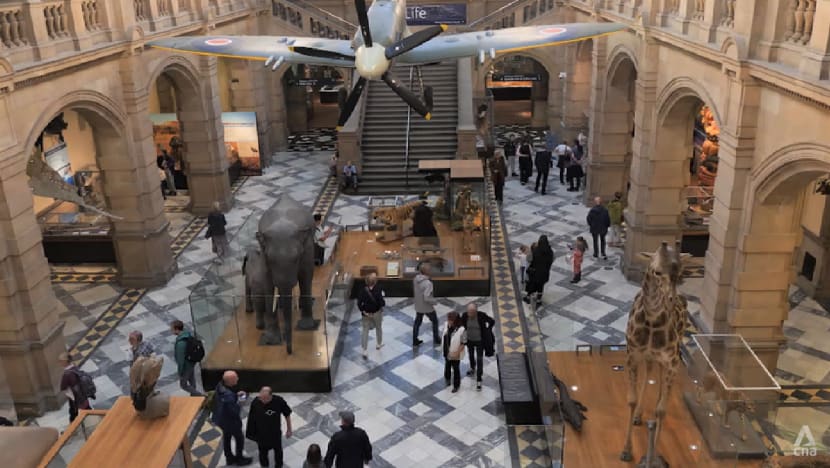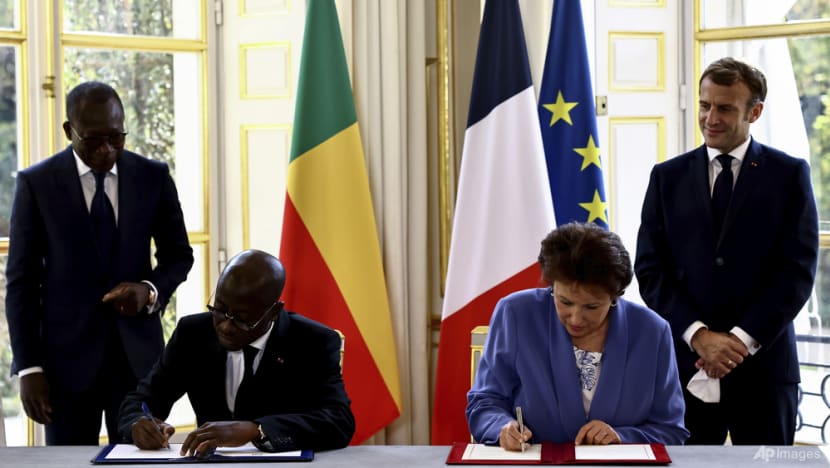British museums grapple with returning prized colonial artefacts to countries they came from
But it is a lengthy and painstaking process, as researchers have to closely examine an object’s origins and determine who the rightful modern owners are.

Some prized artefacts in British museums are gradually making their way back to the countries where they originated from, but rigid legal impediments and political sensitivity have considerably slowed down the process of restitution.
GLASGOW: Some prized artefacts in British museums are gradually making their way back to the countries where they originated from, but rigid legal impediments and political sensitivity have considerably slowed down the process of restitution.
While many of the treasured cultural objects in Britain’s museums were gifted, some were previously stolen or taken by force, particularly during the colonial era.
However, returning the spoils of empires is far from simple, said observers, adding it is often a lengthy and painstaking process.
For instance, researchers have to closely examine an object’s origins and determine who the rightful modern owners are. It also involves coming to terms with the past, including the atrocities and theft during colonial rule.
ADDRESSING HISTORIC WRONGS
Despite the hurdles, the Scottish city of Glasgow has started a process of returning some of the precious collections.
The Kelvingrove Art Gallery and Museum is the first in the country to repatriate several looted items to India, a former British colony.
“There is certainly a feeling that there’s a moral obligation to return these objects where they were forcibly removed,” said Mr Duncan Dornan, head Of Museums And Collections at charity Glasgow Life.
“But I think beyond that, it’s part of establishing a relationship of equals internationally, and allowing Glasgow to move forward in a modern 21st century relationship. To do that we have to start by addressing historic wrongs.”
Related:
Meanwhile, Indian officials have denied reports that New Delhi is planning to actively seek the restitution of artefacts taken by the United Kingdom.
While Glasgow’s collections are owned by the city, which can decide their fate, not all British museums have that power.
Notably, the country’s biggest cultural institutions are restricted by law, which prevents them from disposing of any item of cultural value.
However, the government said it has no plans to change the rule.

TRIGGERING A RESTITUTION MOVEMENT
Its stance is in contrast to the approach taken by France.
In 2017, French President Emmanuel Macron kickstarted the process of returning objects to former French colonies. He was lauded for sparking a restitution movement that has paved the way for returns of colonial-era items from collections in Western countries.
“The amount of stuff which is actually genuinely plundered and looted by these museums is really tiny. I think people get carried away with the perceived scale of objects which have been plundered,” said Mr Lewis Mcnaught, editor of Returning Heritage, a not-for-profit online resource providing reliable information in the cultural restitution debate.
“It probably only represents around 1 per cent of the museum. There are 9 million objects in that museum. The trouble is that 1 per cent, or some of that 1 per cent, are extremely important objects.”
Related:
Critics of repatriation argued these items, which draw thousands of tourists every year, should have a wide audience. Without so-called encyclopaedic museums, visitors would be left with only their own narrow history, they added.
Glasgow’s Kelvingrove Museum said the floodgates have not opened. Only a handful of items are currently under review, but the conversation continues about who has the right to display fragments of the past.














